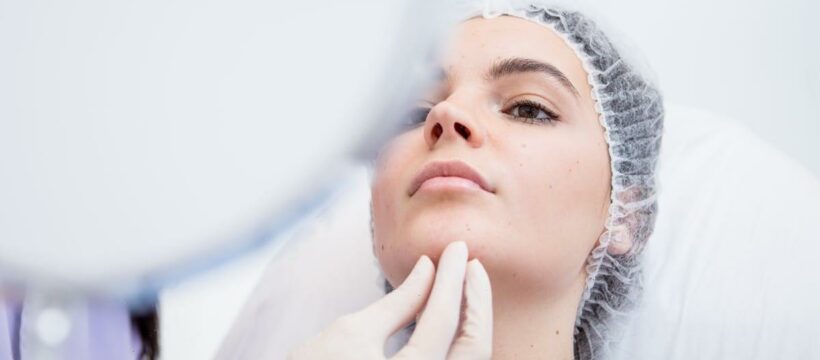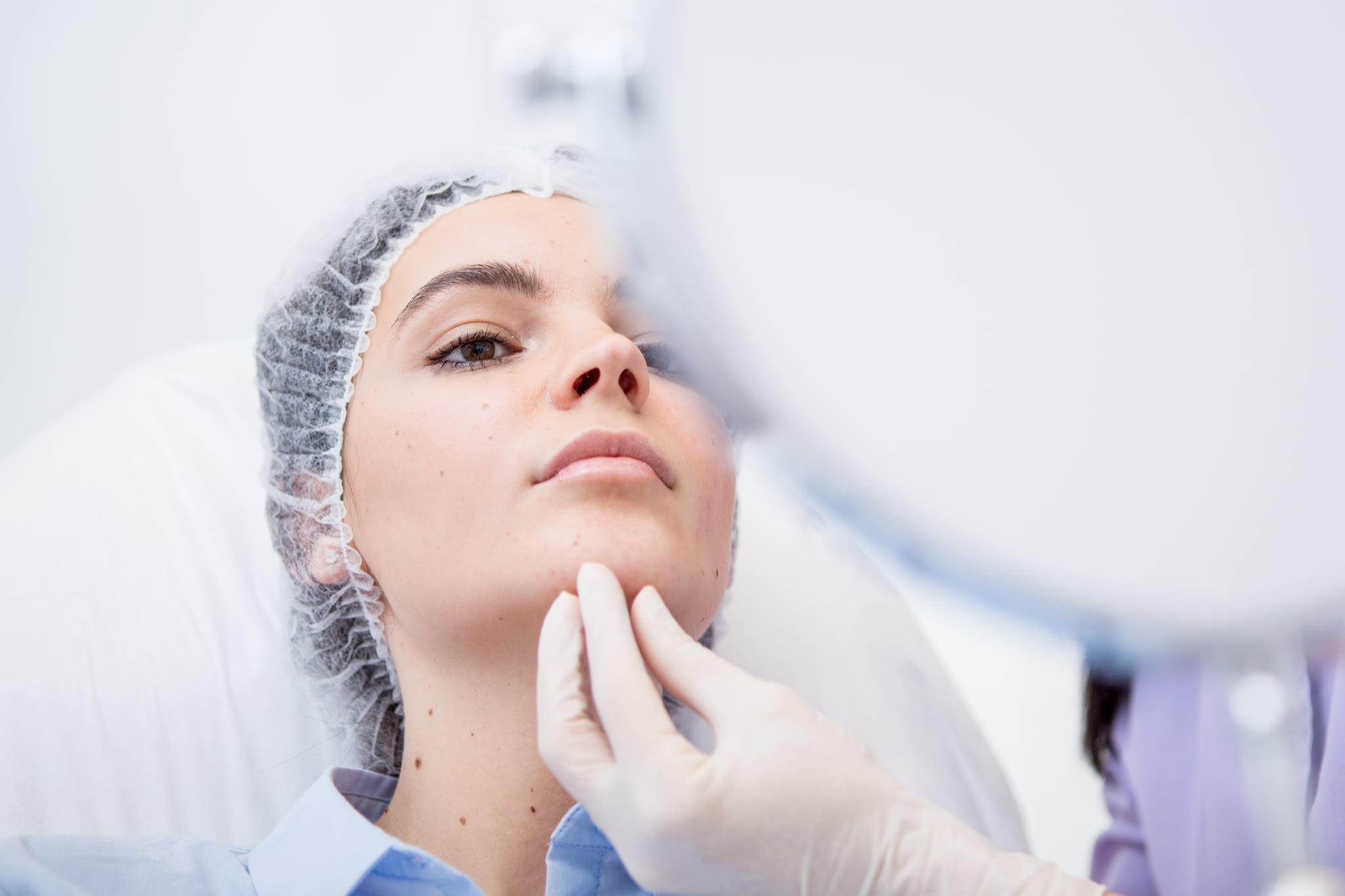Plastic surgery is a hot topic right now. Instagram is flooded with before-and-after pics, people are sharing their personal experiences on TikTok, and more celebrities than ever are getting candid about the work they’ve had done. In 2020, “Zoom dysmorphia” and spending hours a day looking at ourselves on the computer propelled a spike in interest in cosmetic procedures. Even now after things have returned to some sense of normalcy, plastic surgery seems to be more popular than ever. But are people really interested in elective surgeries at a higher rate than before, or is it just that they’re more willing to talk about it?
There’s been a long-upheld stigma surrounding plastic surgery. Whether you were famous or a regular Jane Doe, it was something typically done behind closed doors and kept private. Nobody wanted to answer the “have you or haven’t you?” question. In recent years, however, more people are admitting to getting work done or, at the very least, being interested in the topic.
Between 2020 and 2021, the American Academy of Facial Plastic and Reconstructive Surgery (AAFPRS) reported a 40 percent increase in the number of facial plastic-surgery procedures. Zocdoc, the popular online marketplace used for booking doctor appointments, revealed similar trends: year over year, Botox appointments increased by 66 percent, and cosmetic-surgery appointments went up by more than 86 percent. Though 2022 is still only a little over halfway through, this streak appears to be continuing.
“We have continued to see an uptick in plastic-surgery consultation to procedures,” P. Daniel Ward, MD, Salt Lake City-based facial plastic surgeon and founder of FormRx Skincare, tells POPSUGAR. “This is both within my practice, locally in my market, as well as across the country.” The other four plastic surgeons POPSUGAR spoke to about the topic all agreed.
The driving force of this very fast uptick is largely credited back to social media. (However, Dr. Ward and the other doctors agree the numbers were “already trending up.”) TikTok, in particular, has changed the game with regard to plastic surgery. The video app has made information surrounding the topic more widely available. “TikTok has made it easier to share plastic-surgery experiences with a large audience,” board-certified plastic surgeon Stafford Broumand, MD, of 740 Park Plastic Surgery, says. “It’s also made it easier for people to bring the camera into the treatment room and beyond.”
Perhaps the answer to this question, then, is actually the opposite: people are getting more plastic surgery because we’re not afraid to talk about it.
This all makes the subject far more accessible than it’s ever been before. Whereas you previously needed to find a doctor, book a consultation, drive to the doctor’s office, and meet for 30 minutes to an hour with them in person to find out more about a particular treatment, you now have all of that in the palm of your hand. You have plastic surgeons on the app doing deep dives into what various procedures entail and regular people doing “a day in my life”-style videos where they get Botox or chin implants, which all help to normalize the entire conversion.
Gen Z and young millennial users on the app are largely spearheading these conversations, and double-board-certified plastic surgeon Melissa Doft, MD, points out, “The more that plastic surgery is discussed, the less taboo it becomes.” When more people inquire openly about it, more people are inclined to share their own stories and experiences — and so a cycle begins.
So although TikTok didn’t create this new plastic-surgery trend, it was one of its greatest supporters. Double-board-certified facial plastic surgeon Konstantin Vasyukevich, MD, says, “The interest was always there — TikTok just provided a convenient platform for people to gain knowledge and share their experience with cosmetic procedures.”
We’d be remiss not to give credit to the technological advancements that also helped make this all happen. Plastic surgery is not what it used to be 10, 20, or 30 years ago; the science and technology have gotten smarter and even more effective. Smaller, less-invasive procedures — aka “tweakments” — have acted as baby steps into plastic surgery, but some people believe they’ve also helped indirectly make traditional surgeries more popular.
“[People] have come to realize the limitations of nonsurgical treatments,” Dr. Ward says. “Nonsurgical treatments are limited in terms of the results that can be achieved, but they are also limited in terms of their recovery. Many patients are now realizing that nonsurgical procedures have a longer recovery time than surgical procedures and are opting to go with surgery for the improved result and improved recovery.”
Whether it’s a minor “tweakment” or a full-blown facelift, it’s no longer a hush-hush topic. “In my parents’ generation, plastic surgery was whispered about among close friends; in mine, it is discussed with a slightly larger group; in the next generation, it is posted about on social media,” Dr. Doft says.
“Like with anything in life, once an idea becomes more socially acceptable, a wider range of individuals are going to be willing to do it,” Houston-based double-board-certified plastic surgeon Edward Chamata, MD, says. “At the end of the day, no one wants to be judged or criticized, and that’s what’s held a lot of people back from taking the plunge and going through with that one surgery they’ve always wanted to get done.”
What’s especially interesting, though, is that while plastic surgery is becoming more widely accepted, the objective is still to look ubernatural, as though nothing’s been done. “More and more people coming to me are asking for natural plastic surgery and enhancements that are not overdone,” Dr. Chamata says. More people want plastic surgery without any visible traces of having it (which is why many people are calling this the “end” of the BBL era).
No matter what the motivation or end goal, it’s certainly a refreshing change from the way things used to be, back when many people were led to believe celebrities just happened to look a certain way thanks to diet and drinking lots of water. “I love the openness and the sincerity,” Dr. Ward says. “The time where people have felt ashamed or embarrassed that they have had a cosmetic procedure or surgery is over.”
Source: Read Full Article

